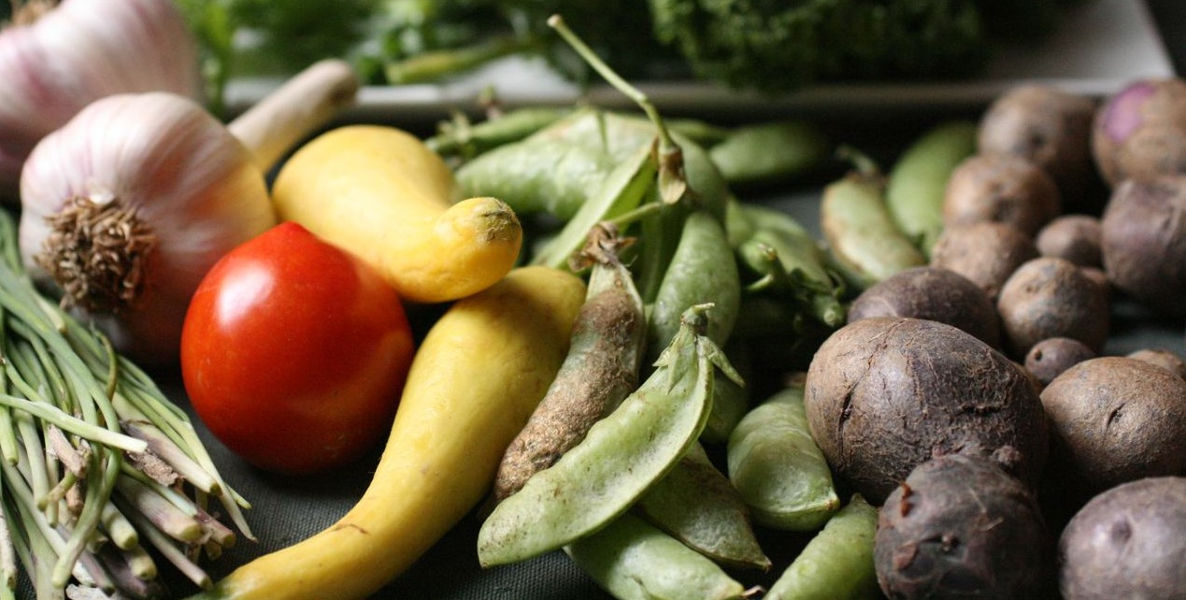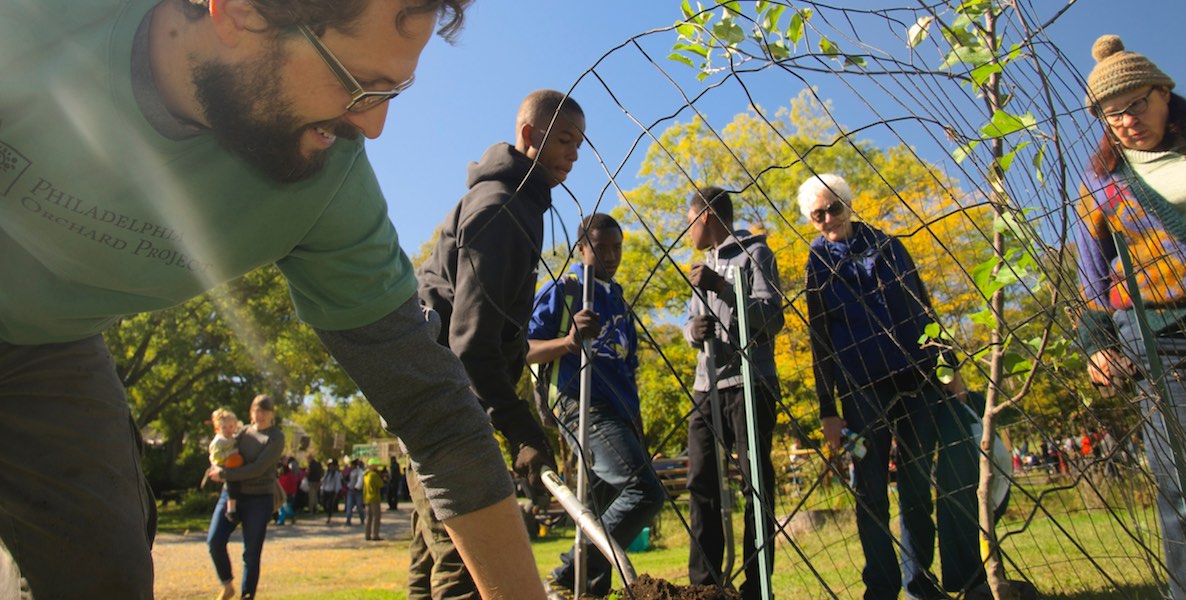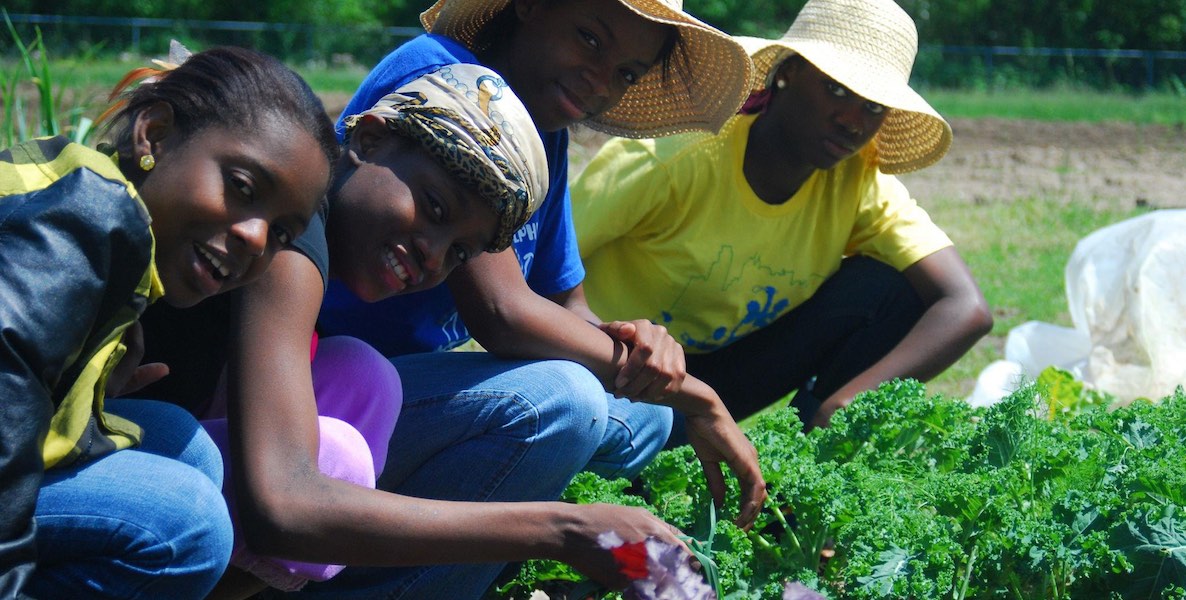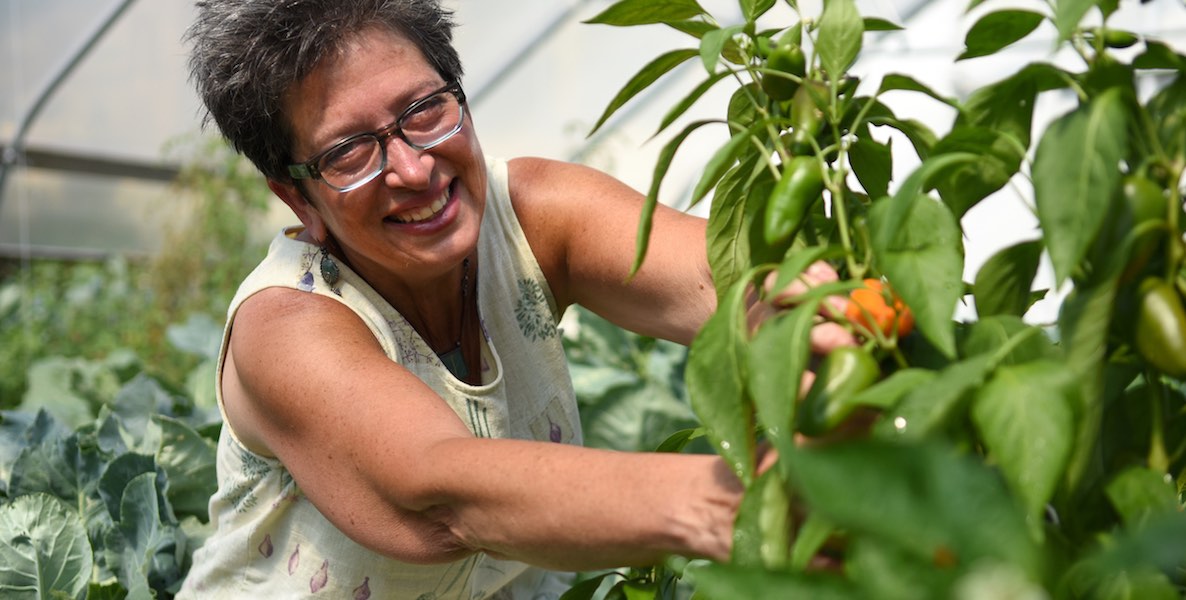Nine months ago, Victoria Lee had never eaten a squash. Now, the single mom of four eats it whenever she can—making butternut squash soup, and summer squash in various ways, for her family in North Philadelphia. And she says her family has never been healthier, or closer.
Lee’s success with the family dinner is largely thanks to Sunday Suppers, an intensive nine-month cooking course run by Linda Samost to teach families the benefits—and mechanics—of healthy eating. Based at Port Richmond’s Memphis Street Academy, Sunday Suppers graduated its first class of 70 participants in June, and has started working with a new group last month.
Samost, a native Philadelphian who now lives in Mount Airy, has spent most of her career working in nonprofits, as a program development researcher in women’s healthcare for women with HIV and AIDS. But after reading an article in the Philadelphia Inquirer in October 2010 about food insecurity in North Philly, she quit her job to create Sunday Suppers.

Samost saw that there were plenty of programs in town to teach children about healthy eating. But she realized that once kids go home, they are often subject to unhealthy eating environments, often not eating with their families at all. She started Sunday Suppers in 2011 as an open house, inviting low-income families to drop in to cook healthy meals and then sit to eat them with their families. She changed the structure of the program last year but not its core mission: To provide families with cooking skills, connect them with healthy food options and increase the communication of the family unit through shared meals.
Samost has been cooking since she was nine years old, and worked as a chef early in her life. Food—healthy food, specifically—is about more to her than just eating. “Food has always really been essential for me,” Samost says. “Food is love, food is family. Food has a lot of representations and a lot of meanings and it’s not just nutrition.”
Samost recruits participants at schools or community meetings, mostly in low-income neighborhoods. Families are eligible if they have one minor child, and commit to attending a session three to four times a month over nine months. Once there, it’s a three-step process:
Families cook together from recipes and ingredients Samost provides; they eat together at tables she sets up; then families get a to-go bag to cook the same meal again later in the week at home.
Last year’s cohort of 20 families increased eating together from about three times a week to nearly six times a week. Vegetable intake doubled and families that once ate four fruits a week eat nearly six today.
But cooking at home requires the right tools and equipment—which many Sunday Suppers participants don’t have. Samost says she’s seen families who did not have knives, refrigerators, dishes or even tables and chairs in their kitchens, making it nearly impossible to make healthy foods or eat all together. So about a month into the program, Samost asks families to do kitchen assessments from a checklist she sends home. Through community donations, Sunday Suppers then distributes kitchen items participants need. Last year, every family received the items they asked for, and got to choose an appliance—a toaster or a blender—as a Christmas gift.
“A lot of people don’t have what they need to make healthy food at home,” Samost says. “If you give them access to that food, but they don’t have the knife, the cutting board, the dishes, then why are they all going to walk in all of a sudden and buy broccoli instead of something fried? If you don’t give them the skills and education they need, how are they going to succeed?”
A longtime program researcher, Samost has done her own assessment of Sunday Suppers, which found that last year’s cohort of 20 families increased eating together from about three times a week to nearly six times a week. And what they’re eating is healthier, as well: Vegetable intake doubled and families that once ate four fruits a week eat nearly six today. They also communicated more than 70 percent more than before they started the program, and considered themselves getting along better by 50 percent.
All of the recipes provided by Sunday Suppers are affordable and accessible for families, tasty and easy to make. One example is Samost’s rewritten lasagna: instead of large noodles and lots of cheese throughout the dish, ravioli are used to have the same effect at a much lower price. One parent asked Samost for an easy pickle recipe. Samost researched, and then led a lesson on two-day pickles, using cucumbers from Sunday Suppers’ community garden. They were a hit amongst everyone—especially Samost, who has since found a passion for canning her own foods.“You can see how what you eat is so tied into your body, your mental health, so many things,” she says.

The families participate in the program cost-free, but must volunteer and help clean up the cafeteria at Memphis Street Academy where the program is located, or work in the school’s community garden as their “buy in” into the program.
Eventually, Samost hopes to run the program throughout the city, and wants the communities she is working in to take it over. This is already starting for Lee, who lost 10 pounds through a weight loss group run by Sunday Suppers. That jumpstarted a new interest for her, and now she will help teach the weight loss course for other families that join Sunday Suppers and want to lose weight.
Even months after she ended the program, Lee’s family dinners still incorporate different kinds of salads and soups. The most important part? The family still eats together.
“[Sunday Suppers] brought me and my kids closer, especially my oldest son,” Lee says. “He talks to me more about things, and they all tell me more about what they’re doing in school. It’s not just about eating healthier but it also brings your family closer and shows people who are low-income to shop for fruits and vegetables within their means. It’s a beautiful experience.”
Header photo by Sabina Louise Pierce






